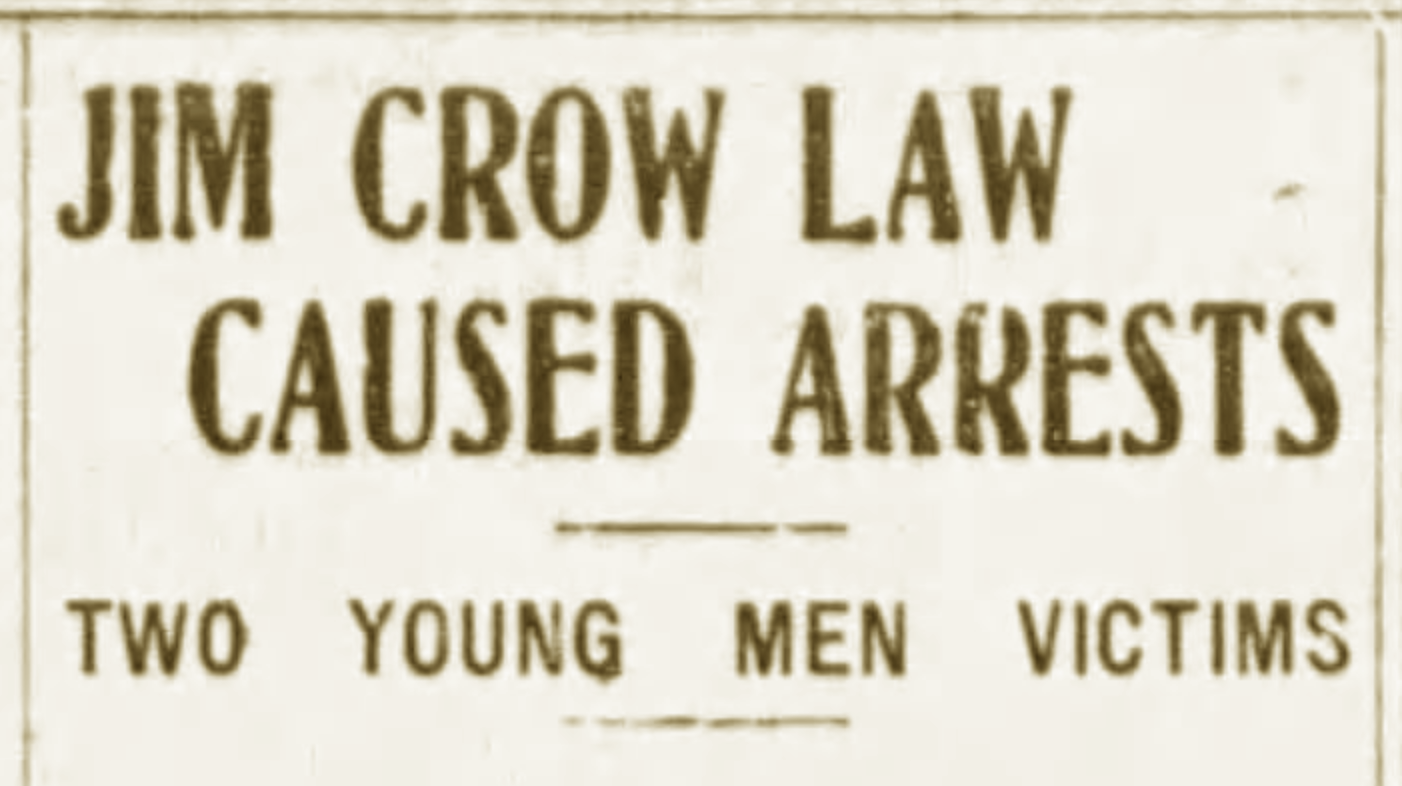Your correspondent takes you on a police raid of local gambling dens, lets you ride on a segregated streetcar, guides you to the many Fourth of July celebrations held in Memphis, visits a national guard meeting, and introduces you to a Memphian who survived the 1906 San Francisco Earthquake and another who was elected governor of Tennessee.
“Unlawfully Selling Pools”
On May 1st, 1906, Fred McGuire was sentenced to a $200 fine and six months in the county workhouse by Judge J. T. Moss for keeping a gaming house at 142 Main Street. There he organized and collected bets, or pools, on horse races which were illegal because they were not taken inside a licensed racetrack. The move against McGuire was part of a broader strategy to curb illegal gambling in Memphis. Soon after McGuire’s arrest, police raided Jack Sheehan’s place on Madison and the Cafe Royal, arresting 38 gamblers.

“A Box of Happiness”

“I Have Nothing”
On the same day Fred McGuire was convicted, another Memphian received much better news. A letter was delivered to a nervous Albert Whiffen, 1364 Ridgeway Avenue, from his son Thomas who lived in San Francisco. On April 18th a devastating earthquake laid waste to the Bay Area, causing at least 700 deaths. In his letter Thomas explained, “I have nothing but a whole skin and am thankful for that.”
“Memphis is All Smiles”
One month later, many Memphians celebrated the nomination of Memphis attorney and U. S. Representative Malcolm Patterson as the Democratic Party candidate for governor of Tennessee. In his acceptance speech, Patterson declared, “Words cannot express the emotion I feel as I face this magnificent assemblage of the brave men and loyal Democrats of Tennessee. The commission you have placed in my hands represents your confidence in my fidelity to the principles of the Democratic Party…I accept this nomination at your hands and in doing so I wish to extend my profoundest thanks.” Many Memphians also felt thankful at having one of their own nominated for governor. Thousands crammed around The Commercial Appeal’s bulletin boards to read of Patterson’s victory. “Memphis is all smiles,” reported the newspaper. Patterson was elected in November and he served as Governor of Tennessee from 1907 to 1911.

“Struck By Wagon”
Mrs. Martha Howard was crossing the street near the intersection of Main and Madison on June 6th when she was hit by a wagon driven by J. T. Sullivan. Carried into a nearby drug store, Mrs. Howard recovered from the shock and was soon driven to her home at 328 Trigg Avenue. Sullivan was arrested for reckless driving by Patrolman Hooks.
“This was the Last Straw”
An unusual occurrence took place on June 19th that provides us with a deeper understanding of how segregation laws worked in the early 20th Century. That evening two white men, E. S. Moss and W. L. York, boarded the Johnson Avenue streetcar and sat near the back. As the car made additional stops, African American passengers boarded the trolley which, by law, required Moss and York to give up their seats and move forward. According to The Commercial Appeal, “Again, they allege, the conductor asked them to move forward and give their seats to negroes [sic]. This was the last straw. There were, according to their story, no more vacant seats in front and they refused to move.” When the streetcar stopped at the intersection of Main and Adams, Moss and York were arrested for violating the state segregation law.

“No Local Casualties During the Day”
Independence Day celebrations were held throughout the city on July 4th. Professor Saxby’s band presented a patriotic concert at Overton Park. The program included performances of “American Republic,” “Let Me Like a Soldier Fall,” “Three Cheers for the Red, White and Blue,” and a recitation of “Old Glory” by Eleanor Haberling. The Elks held a baseball game at Red Elms Park and picnics were enjoyed throughout the city. At Fairyland Amusement Park, Memphians rode the roller coaster and Shoot the Chutes, and the White City Theatre in East End Park offered a fireworks display. These were the only pyrotechnics authorized by local authorities. Because of severe accidents that had taken place in previous years, police banned the use of explosives and fireworks within Memphis. Everyone adhered to the prohibition save for J. B. Reives who ignited a roman candle and Henry Kelly who placed torpedoes on the streetcar tracks near the intersection of Main and Washington. Both men were apprehended and forced to pay a $25 fine. Other than these minor incidents, Memphis was quiet and accident-free. The Commercial Appeal reported, “There were no local casualties during the day.”

“Longer Than any Other Officer in the Militia of the United States”
On July 24th the Neely Zouaves militia company met at their armory on Front Street to elect their officers. Forty-seven enlisted men and three officers were there to choose who would lead the unit for the following year. Frank “Kit’ Deffry was re-elected captain of the company, a post he had held “longer than any other officer in the militia of the United States.” Born in St. Louis, Deffry came to Memphis and formed the Zouaves which, along with the Chickasaw Guards, became one of the best militia companies in the city. When the Tennessee National Guard was formed in 1887, The Neely Zouaves became Company A of its first regiment. Deffry and the first regiment served in the Spanish-American War, and he remained their captain until his death in 1914.
That’s the way Memphis was…from May to July 1906.
Wayne Dowdy is a senior librarian and archivist at the Memphis Public Library and Information Center. In 2015 he was awarded the Tennessee Historical Commission’s Certificate of Merit for his book On This Day in Memphis History. His most recent book is Enslavement in Memphis.

